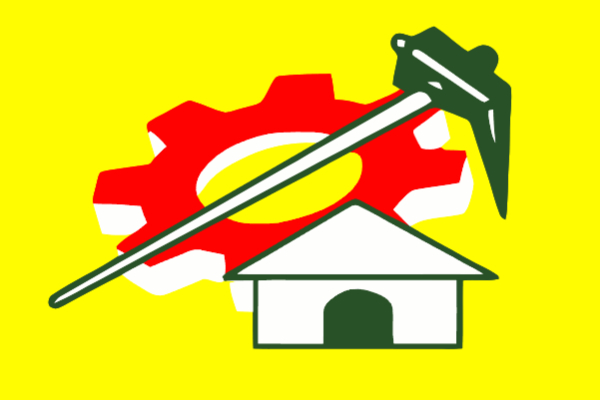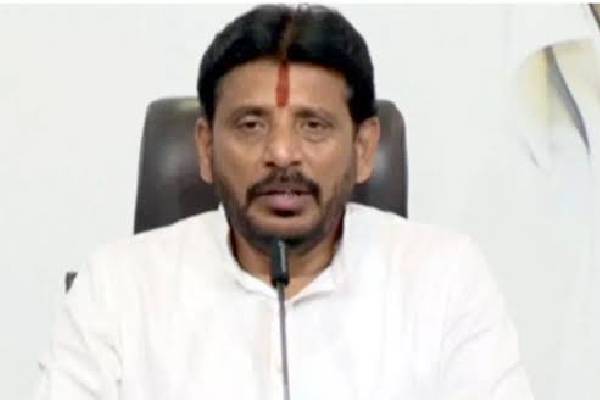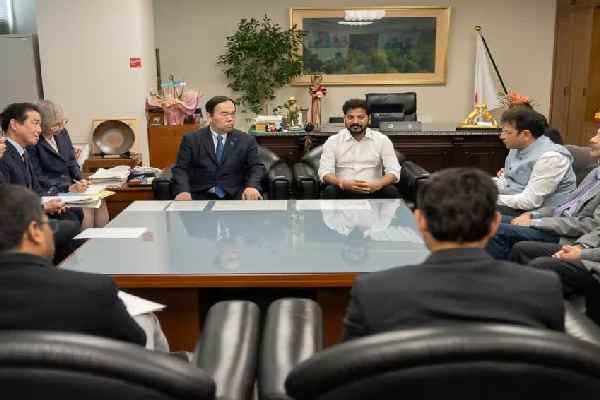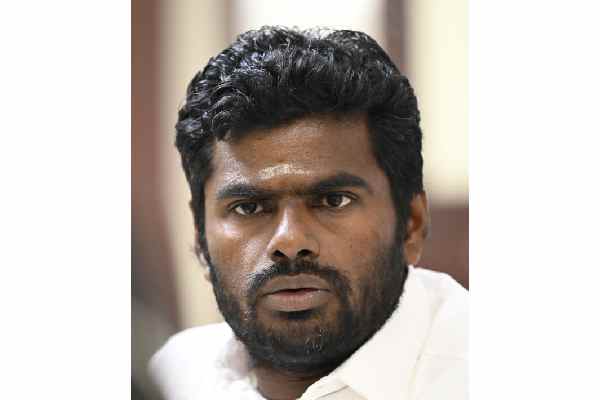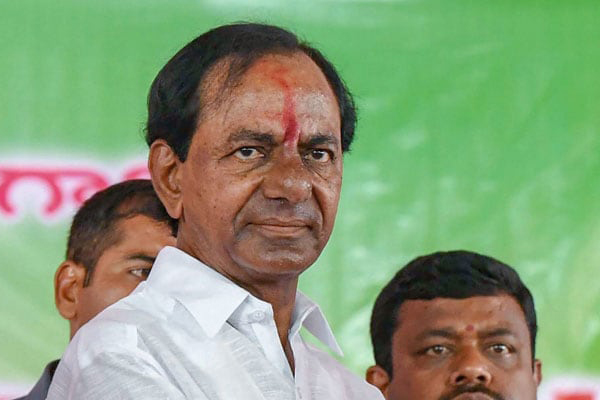Suicides, shutdowns, ‘Vanta varpu’ or cooking on roads and ‘Dhoom Dham’ or the cultural programme were all part of the movement for statehood to Telangana. With the employees of state-owned Road Transport Corporation (RTC) using the same tactics for their ongoing strike, history appears to be repeating itself in Telangana.
K. Chandrashekhar Rao, under whose leadership the Telangana movement used all these tools as part of the strategy, is now at the receiving end.
Over 48,000 employees of RTC along with their family members on Sunday participated in ‘Vanta varpu’. They cooked the food and ate it by the roadside. The scenes were reminiscent of the Telangana agitation between 2009 and 2013.
The same day a RTC driver set himself ablaze in Khammam as he was depressed over the chief minister sacking all the striking employees. The next day a conductor hanged himself in Hyderabad as he, like all other striking employees, had not received the salary for September and a cheque he had issued towards his EMI for home loan had bounced.
At least three other employees tried to commit suicide, giving a serious turn to the strike that began on October 5.
The decision of Joint Action Committee (JAC), comprising RTC employee unions, to launch indefinite strike was the first major challenge to KCR in six years. They had a list of 26 demands, the main being RTC’s merger with the government.
Acting tough, KCR issued an ultimatum to workers to return to work by 6 p.m. on October 5 but only a few did. The Telangana Rashtra Samithi (TRS) boss did not like the open defiance, saying trade unions which went on strike under previous governments can’t dare to use the same weapon against his government.
He hit back by declaring that only 1,200 employees remained in RTC. For him, all other employees stood self-dismissed for not joining the duty before the expiry of the deadline.
“His stern warning was ridiculed as no one returned to work. In fact his statement that there are only 1,200 in RTC proved grand success of the strike,” political analyst Telakapalli Ravi told IANS.
Often criticized by his opponents for dictatorial attitude, KCR ruled out taking back the striking employees and announced that no talks will be held with them. Further angering the striking employees, he unveiled plans to recruit temporary drivers and other employees and use more private buses. He directed the police chief to deal firmly with any attempt to disrupt the bus services being operated by RTC with the help of temporary staff.
The analyst says KCR stood exposed for his double standards on strike. “His stand on strikes was different earlier. He changed the stand as it suits him. He also proved his eagerness to privatise RTC,” said Ravi.
By not paying September salaries to employees, especially during the festival time, KCR invited more criticism from the employees and the opposition who called him ‘arrogant’.
The occasion provided an opportunity to all his rivals including those who were with him during Telangana movement to come on a common platform. This was something never witnessed since formation of Telangana.
Student groups too joined the protest in support of the striking employees to corner KCR. Telangana Jana Samithi (TJS) leader M. Kodandaram, who was with KCR during Telangana movement, also called for another ‘Sakala Janula Samme’ or the mass strike which had lasted for six weeks in 2011 mounting pressure on the Centre.
Sensing that government employees could also join hands with RTC employees, the chief minister adopted ‘divide and rule’ policy by inviting the leaders of the government employees and promising to address their pending issues including pay revision.
The daily protests by striking RTC employees had started rattling the TRS. The party leaders were also worried over the impact this could have on the party’s prospects in October 21 by-election to Huzurnagar Assembly seat.
With the situation turning grim following suicide of two employees, KCR showed signs of softening his stand. Through his trusted aide and advisor K. Keshav Rao, he sent the feelers to the striking employees that the government is ready for talks.
“From refusing to take back the striking employees to now urging them to call off the strike and come forward for talks, it is a big climb-down by KCR,” said a political analyst.
With JAC too showing readiness to accept Keshav Rao’s mediation, this may be construed as a victory of the striking employees, irrespective of the outcome of talks.
Analysts say the strike by RTC employees broke the myth that no one can challenge KCR. “There is no doubt that KCR stands his authority challenged as never before. He may not be Ivan the Terrible anymore,” said Ravi, who believes that other employees in the state may take a cue from their counterparts in RTC.
Ravi also believes that the strike has given the opposition much need shot in the arm. Major opposition parties may now try to assert themselves and this could begin with Huzurnagar bypoll.





















